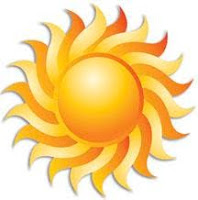 The ongoing underwater oil disaster in the Gulf of Mexico has created a host of well-publicized environmental problems, from oil-soaked birds to goo-saturated beaches. But officials are also warning of another potential hazard: The threat to the health of people who live in the region.
The ongoing underwater oil disaster in the Gulf of Mexico has created a host of well-publicized environmental problems, from oil-soaked birds to goo-saturated beaches. But officials are also warning of another potential hazard: The threat to the health of people who live in the region.Like any disaster, there are steps that people can take to be prepared for an environmental crisis in their community — which can happen anytime, anywhere and without warning. Some good general advice? Always have an adequate supply of bottled water stored(PDF) in case tap water becomes contaminated. Pay close attention to the news and be mindful of warnings to evacuate or to stay inside your home. Actively seek out information from reliable sources, such as government officials and your local health department, and share their advice with your neighbors and others who you care about.
In the case of the Gulf oil disaster, health officials have released some specific tips for people who live in the region. Among the recommendations:
• Be aware of the air: People with respiratory problems or asthma should carry their inhalers or medication with them when near the shoreline, or anywhere they can smell chemicals in the air. Even though humans can smell gas from oil wells before it has the potential to cause harm, the Centers for Disease Control and Prevention notes that those with respiratory issues may be more sensitive to the strong smell of oil.
• Special tips for moms-to-be: Pregnant women should take special care when coming into contact with food, water or air that may be contaminated by the oil leak and avoid areas where there are reports of oil reaching the shore, according to CDC.
• Stay out of the water: Although drinking water is not "expected to be affected"by the disaster, swimming at beaches can result in skin rashes or other effects. Before making plans to head to Gulf coast beaches, do some quick research on their status.
• Pay attention to food warnings: Federal health officials are monitoring the oil leak’s impact on seafood and will issue warnings if anything is deemed unsafe. If you are unsure whether something is safe to eat, contact your local health department.
• Watch out for winds: If a hurricane hits in the Gulf region, strong rains and winds could spread around oil or contaminated debris, the National Oceanic and Atmospheric Administration warns, so caution is advised when cleaning up after storms.
For more information, visit the CDC and FDA websites, as well as your state and local health departments’ websites.
Photo credit: A worker cleans up oil that washed ashore in Grand Terre, La., on June 3. U.S. Coast Guard photo by Petty Officer Third Class Ann Marie Gordon


